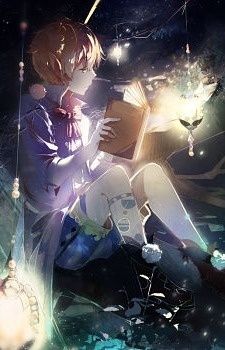|
If you liked
Versailles no Bara
|
...then you might like
Gaksital
|
Gaksital and Rose of Versailles have a lot in common. Both of them take place within a specific country, Gaksital in Korea and Rose of Versailles in France. They're both stories of real-life events that took place during each countries respective tragic eras [Korea (1930) and France (late 1700s)]. 1930s Korea was under the oppressive rule of Coloniel Japan and thousands of Koreans were being raped, enslaved and slaughtered. 1700s France was going through a time of revolution because of the corruption of the government, and thousands of people were dead by the time the Reign of Terror ended. Both the main characters are somewhat similar - Tragic Heroes. Gaksital revolves around a mysterious masked villain/hero (The Gaksital) who not only physically serves justice for the people of Korea, but also plays psychological mind games with the Japanese Police Beareu in Korea. The Gaksital hides his own pain in order to protect the ones he cherishes, and questions whether what he's doing is beneficial for his country and the people, or toxic. Rose of Versailles revolves around a high-ranking female officer, Oscar François de Jarjeyes (Lady Oscar), whose life duty is to protect the royal family/government, but is torn just like the Gaksital, but for different reasons. Lady Oscar is torn between her duty as a "Male-raised Officer" and her true female desires, as well as her duty as the Royal Family's Commander and her personal ideals. Both mangas focus on comparing the luxurious/corrupt rich nobles and the filthy poor citizens. Both are a build-up to, and eventually end up in a awe-inspiring revolution. Both the Gaksital and Lady Oscar are tragic figures who are two of the greatest literature-characters I have ever read about, both inside and outside the manga community; same goes for the stories. Both stories are brilliant masterpieces, and are must-reads/watches.
|
If you liked
Code Geass: Hangyaku no Lelouch
|
...then you might like
Gaksital
|
Both Gaksital and Code Geass are the epitome of Tragic Hero's rebellion. In both tragic stories, the main characters, Lee Kang-To and Lelouch Lamperouge have a hatred for their respective governments on a personal level and a clashing ideals-level. Both of them are from noble heritage, but through traumatizing events, become your average citizens. Both of them start their rebellion after experiencing a life-changing event that calls them to adventure. Both Kang-To and Lelouch are morally ambiguous characters, they do "bad" as well as "good". They can be seen as both heroes and villains depending on the audience's ideals/beliefs. They are both incredibly smart and manipulative but they also have a fatal flaw that lead to their undoings (at least for a period of time). They both wear masks and hide their true identities from the public during their rebellion. Behind the masks, and all the outside fighting, they are fighting against themselves internally, questioning whether or not what they're doing is the right thing. They both try to conceal the pain and hardship that they're suffering from in order to protect the people around them. And by the end, they both become "greater" figures than what they were in the beginning. The difference between the two is that Code Geass is a completely fictional story where supernatural powers exist: "Power of the Kings". Meanwhile, Gaksital is a true historical story with no magical powers; old guns and swords. Furthermore, Code Geass takes place in a fictional world with the entire world at stake while Gaksital takes place solely in Korea and only Korea is on the verge of "demolition". Additionally, a lot of Code Geass takes place in a modern day school, while Gaksital takes place solely in the streets of Korea, the rebellion camps of Korean youths, and the Japanese police station headquarters (in Korea). Not to mention that Code Geass is a lot more childish with some fan-service while Gaksital is more dark and serious with not even the slightest hint of fan-service (that's not saying that there's no sexual actions, but they aren't just for the heck of getting the audience's attention). They are both incredible and highly enjoyable tragedies-tales of Great Heroes (albeit one is completely made-up while the other is real). Both have great psychological face-offs with their opponents: The main characters make clever plans to deceive/defeat their opponents usually by countering their opponent's counter plan which was supposed to counter the main character's first counter plan which was to counter their opponent's original counter plan which was supposed to counter the hero's "obvious" plan but the hero's obvious plan was to counter their opponent's obvious plan which was... You get the idea. And there are lots of plot-twists that leave the audience frustrated at times, but also interested and entertained. Both have memorable and grandiose endings~



